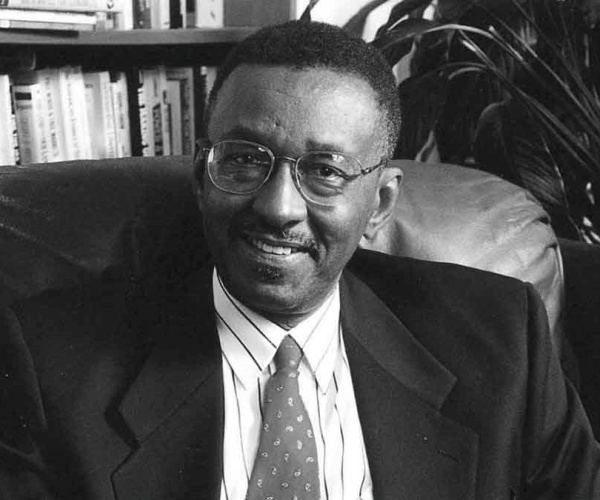Walter E. Williams has passed away. As a renowned columnist and the John M. Olin Distinguished Professor of Economics at George Mason University, he spent over fifty years promoting free markets and ensuring that generations of students graduated with an appreciation and understanding of liberty and the American democracy.
Born in 1936, Dr. Williams graduated from Benjamin Franklin High School before venturing to California to live with his father while attending one semester at Los Angeles City College. In 1959, he was drafted into the United States Army. While serving as a private, he waged a “one man battle against Jim Crow from inside the army.” Dr. Williams’s war on the racial order resulted in a court martial proceeding in which he was found not guilty after arguing his own case.
Toward the end of his military service, Dr. Williams wrote to President John. F Kennedy, questioning, “Should Negroes be relieved of their service obligation or continue defending and dying for empty promises of freedom and equality? Or should we demand human rights as our Founding Fathers did at the risk of being called extremists. . . I contend that we relieve ourselves of oppression in a manner that is in keeping with the great heritage of our nation.” These same themes of liberty and the promotion of human dignity would forever be showcased in his economic scholarship and journalism.
Following his years in the service he went on to receive his bachelor’s degree in economics in 1965 from California State University. He earned both his master’s degree (1967) and his Ph.D. (1972) in economics from the University of California–Los Angeles. From 1995 to 2001, Williams chaired the economics department at George Mason University.
Williams believed the best educational outcomes came from a rigorous core curriculum and a carefully chosen coarse load, and ACTA felt deeply honored by his supportive words about our core curriculum survey, What Will They Learn?®. While scolding colleges for not living up to their high promises of liberal education, he also put the onus onto the student: “Even though some of the best-known colleges earn poor marks for their general education curricula, it doesn’t necessarily mean they do all things poorly. A student can get an excellent education at these schools if classes are chosen wisely.” Throughout his career he argued that trustees, students, parents, and alumni were the catalysts for change on college campuses because “there’s little more effective in opening the closed minds of administrators than the sounds of pocketbooks snapping shut.”
Between 1971 and the publication of his last column on December 1, 2020, Dr. Williams wrote hundreds of articles, book reviews, and research publications for outlets ranging from the Wall Street Journal to the American Economic Review. The author of 10 books, his seminal 1982 work The State Against Blacks was later made into a PBS documentary.
ACTA will truly miss his voice and ideas in the debate to restore American higher education as the envy of the world.
